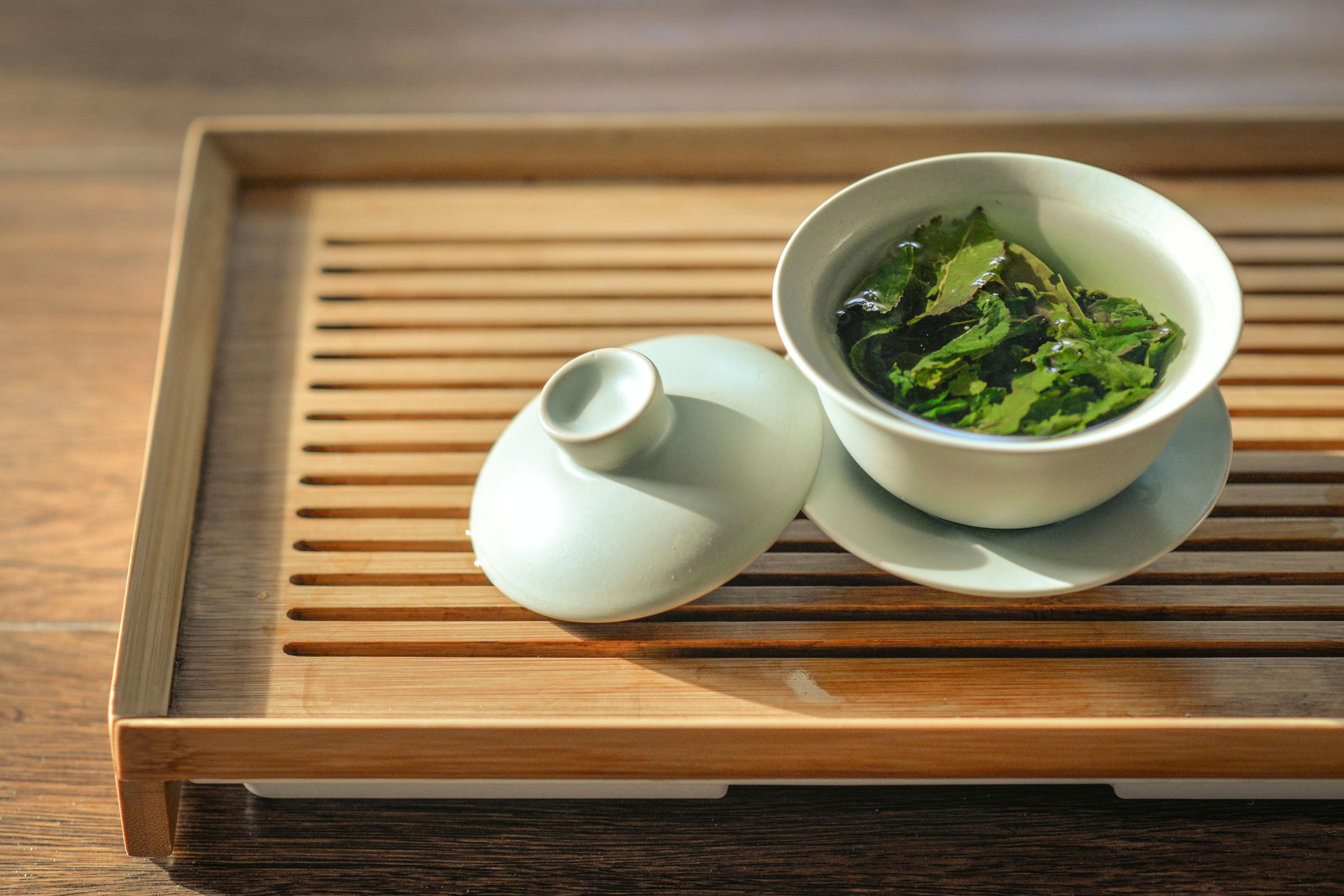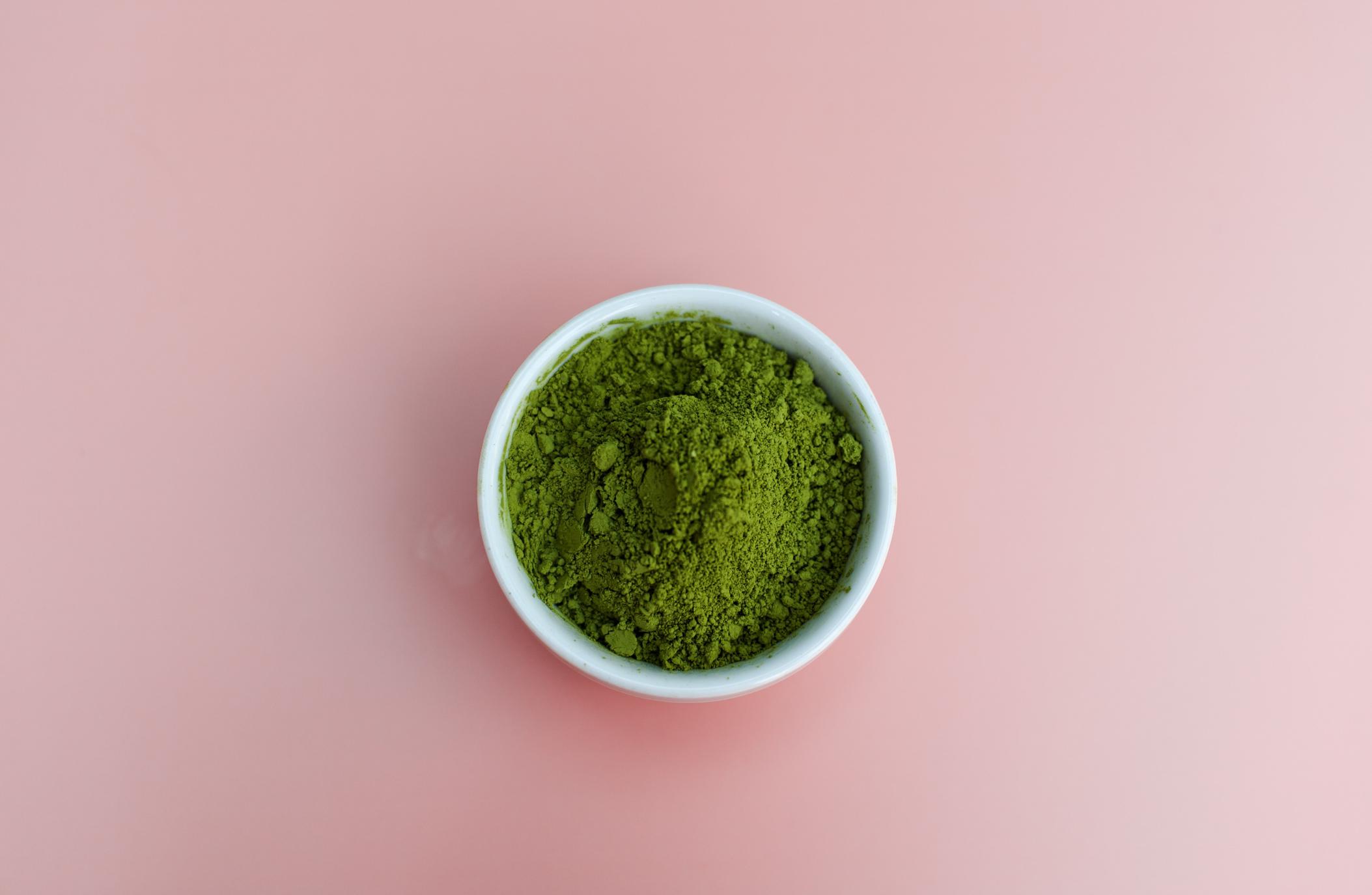Summary. Green tea is gaining in popularity for its potential health benefits. It boosts metabolism and is linked to a decrease in disease risk, including cancer and diabetes. The high levels of antioxidants it contains can help flush toxins from the body and protect it from damage caused by free radicals. Green tea also contains caffeine, which can cause side effects such as insomnia, headaches, and jitteriness if consumed in large doses. Nevertheless, green tea can be a great way to refresh and improve your health when consumed in moderation.
Drinking green tea is becoming increasingly popular with health-conscious people due to its various benefits, but there are also some potential side effects to be aware of. Have you ever wondered why green tea is thought to be so beneficial? Are you curious about what the potential side effects are? Keep reading to learn about the potential benefits and potential side effects of drinking green tea! Green tea has become a staple in many people’s diets due to its multitude of potential health benefits. The leaves of the Camellia sinensis contain high levels of catechins, a type of antioxidant with anti-inflammatory properties.
They may also help reduce the risk of certain types of cancer. However, while drinking green tea can provide many potential health benefits, there are also some potential side effects to consider. Excessive consumption of green tea can lead to nausea, upset stomach, constipation, increased heart rate, and headaches. It may also interact with certain medications, so it is important to consult a doctor before taking green tea. So, what are the benefits and potential side effects of drinking green tea?
The potential side effects of consuming too much of it, however, include nausea, upset stomach, constipation, increased heart rate, headaches, and potential interactions with medications. Have you ever tried drinking green tea? What has been your experience with it? Share your thoughts in the comments below!
Benefits of drinking green tea include: Improves brain function: Green tea contains caffeine and L-theanine, two compounds that work together to improve brain function, giving you enhanced focus and better alertness. Boosts metabolism and aids in weight loss:
Green tea contains catechins which help increase metabolism. Studies have shown that regular intake of green tea can help promote weight loss, reduce cholesterol and lower the risk of type 2 diabetes. Contains antioxidants and anti-inflammatory effects: Green tea is rich in antioxidants which protect the cells from damage. It also has anti-inflammatory effects which may help ward off certain types of cancer.
Improves heart health: Green tea is known to reduce the risk of cardiovascular diseases due to its catechins and flavonoids. Studies show that green tea can help lower LDL cholesterol levels. Aids in digestion: Green tea contains polyphenols which help to support a healthy digestive system. Side Effects of Drinking Green Tea: Interferes with Iron Absorption: Drinking green tea with foods can interfere with the absorption of iron in the body, which could lead to anemia.
Increases Heart Rate: Green tea’s caffeine content may cause an irregular heartbeat or an increase in heart rate. May Increase Anxiety: For those who are prone to anxiety or stress, green tea can increase feelings of nervousness. Interacts with Certain Medications: Some medications can interact with green tea, so it’s important to check with your healthcare provider before drinking it.
What is Green Tea?

Green tea is an incredibly popular and refreshing beverage that has been enjoyed for centuries. It is believed to have originated in China and is now enjoyed all over the world. Green tea is made from the leaves of the Camellia sinensis plant and is packed with many beneficial antioxidants and other health-promoting compounds.
Many studies have shown that drinking green tea can have various health benefits, such as improving cognitive function, helping with weight loss, and lowering levels of oxidative damage. When it comes to the benefits of drinking green tea, there are many. Green tea contains powerful antioxidants, which are substances that help to protect the cells in the body. These antioxidants have a number of different benefits, including reducing inflammation and protecting cells from oxidative damage.
Furthermore, green tea has been linked to improved heart health, as it can help to reduce LDL cholesterol levels and improve blood vessel function. Along with its numerous health benefits, green tea can also help with weight loss. It has been shown to increase metabolic rate and reduce fat absorption, which can help to promote weight loss.
Because green tea is calorie-free, it can be a great way to satisfy cravings without the extra calories. Moreover, green tea can also help to reduce the appetite and boost the body’s ability to burn fat. While there are numerous health benefits to drinking green tea, there are also some potential side effects.
If you have a sensitivity to caffeine or you are trying to avoid it, you should know that one cup of green tea can contain up to 30 mg of caffeine. This means that drinking more than one cup a day can lead to a number of unpleasant side effects, such as insomnia, anxiety, and headaches.
Additionally, green tea can also interact with medications, so it is important to talk to your doctor before taking any medications if you are drinking green tea.
Health Benefits of Drinking Green Tea

Drinking green tea has been part of many people’s routine for centuries. Its unique flavor and beneficial health properties have helped it gain a reputation for being a natural remedy for many common ailments. People have also grown fond of its unique flavor, making it a popular drink across many cultures.
Green tea is packed with antioxidants, vitamins, and minerals. While some people may argue that green tea can provide significant health benefits, there are some potential side effects you should be aware of. So what are some potential health benefits of drinking green tea?
Antioxidants help fight off free radicals, which are unstable molecules that damage cells and cause inflammation. Green tea also contains polyphenols, which have anti-inflammatory and anti-carcinogenic properties. In addition, green tea may reduce the risk of developing some types of cancer, such as prostate and breast cancer.
Green tea may also reduce the risk of cardiovascular disease, diabetes, and obesity. Green tea may also help improve mental focus and concentration. The caffeine in green tea has been shown to increase alertness and improve memory and focus.
While drinking green tea can provide many health benefits, there are some potential side effects to be aware of. Most of the side effects are mild and usually disappear quickly if the person stops drinking the tea. For people who are sensitive to caffeine, drinking green tea can cause insomnia, headaches, and jitteriness. Additionally, some of the compounds found in green tea can interact with certain medications, so it is important to speak with a doctor before drinking green tea if you are taking any medications.
Types of Green Tea

When it comes to health benefits, green tea has a lot to offer. The main benefit of drinking green tea is that it contains powerful antioxidants, which offer a range of health benefits including protection against heart disease, cancer, and stroke. Green tea also contains various compounds that can help boost metabolism, reduce inflammation, and improve cognitive function. Additionally, green tea offers a number of other health benefits, such as helping to reduce blood pressure, reduce cholesterol, and promote healthier skin.
For most people, the main side effect of drinking green tea is caffeine, which can cause insomnia, jittery feelings, and headaches. Additionally, green tea can interact with certain medications, so if you take any medications, it’s important to speak to your doctor before drinking green tea. In terms of what types of green tea are available, there are a number of options out there. Green tea can be purchased as loose tea, tea bags, or even in powder form.
If you’re looking for something with more flavor, you can opt for flavored green tea, which is available in varieties such as chai, matcha, and jasmine. It’s important to note that green tea is not a miracle cure-all, but instead is part of a healthy lifestyle.
Drinking green tea can help to supplement and support a healthy lifestyle, however it should not replace other foods and drinks that are important for a healthy diet. Additionally, it’s important to keep in mind that drinking too much green tea could have negative effects, so it’s important to stay within the daily recommendation of two to four cups.
Potential Side Effects of Drinking Green Tea

Green tea has recently become one of the most popular beverages, championed for its supposed health benefits. Studies have found that drinking green tea can provide many health benefits, including aiding weight loss, preventing cardiovascular diseases, and reducing the risk of cancer.
Despite these positive effects, drinking green tea may also have negative consequences, and it is important to know the potential side effects before consuming it on a regular basis. First and foremost, some ingredients in green tea may have adverse effects on one’s health. Caffeine, for instance, can cause insomnia in those who are sensitive to it. Furthermore, people with pre-existing medical conditions or hypertension should be aware that green tea can worsen certain symptoms if it is consumed in high amounts.
Green tea can also interact with some medications. Green tea contains polyphenols, which can interfere with some types of medication. For example, it is possible that green tea may interfere with chemotherapy drugs, leading to reduced effectiveness. Therefore, those who are taking any medication should consult with their doctor before drinking green tea. Additionally, green tea can cause digestive issues. Some people may experience bloating, cramping, or constipation after drinking green tea, as it can decrease the amount of available fluid in the body.
Finally, drinking too much green tea can cause dehydration. Green tea is a diuretic, which means that it causes the body to expel more water than it takes in. Thus, drinking too much green tea may cause dehydration, which can lead to headaches, fatigue, and constipation. It is important to drink enough other fluids, such as water and juice, to make up for the fluids lost to green tea.
Overall, green tea has many potential health benefits, but it is important to be aware of the potential side effects. If you are taking any medication or have any pre-existing medical conditions, make sure to consult with your doctor or healthcare practitioner before drinking green tea. Additionally, it is important to drink green tea in moderation to avoid any potential negative side effects.
Additional Benefits of Drinking Green Tea

We’ve all heard about the health benefits of green tea and its potent antioxidants, but did you know that it’s also a powerhouse for weight loss and other benefits? Drinking green tea has been shown to increase fat burning and boost your metabolism. Due to its thermogenic properties, it can help you burn calories and increase energy levels throughout the day.
Additionally, green tea can help reduce appetite and cravings, making it easier to stick to a healthy diet. The high concentrations of antioxidants in green tea also come with additional advantages. These antioxidants have been linked to improved brain function, better heart health, and even a reduced risk of cancer.
Green tea also contains numerous B vitamins that can help to boost your overall energy levels, while also providing gentle stimulation. This can lead to improved focus and concentration. Additionally, the tea contains less caffeine than coffee, meaning you can enjoy the energy boost without the jitters and potential for an energy crash later. Green tea has also been shown to increase immunity levels, making you less prone to sickness. Finally, green tea is incredibly versatile and can be added to recipes and beverages.
You can also enjoy it iced or hot, making it an ideal drink for any time of the year. Overall, drinking green tea is an excellent way to enjoy the natural flavors and the numerous health benefits it provides. From improving cognitive function and metabolism, to its potential for reducing the risks of certain diseases, it’s truly a powerful beverage choice. However, it’s important to remember that green tea does contain a small amount of caffeine. Pregnant women and those with sensitive stomachs should therefore adjust their intake as needed.
Choosing the Right Green Tea for You

Green tea is an incredibly popular beverage, and it’s been around for centuries. Many people turn to green tea for its potential health benefits, but it also carries a few risks. It’s important to know what the benefits and side effects of drinking green tea can be before you decide to start consuming it. The benefits of drinking green tea are numerous.
Green tea is loaded with antioxidants and polyphenols which can help to reduce signs of aging, improve memory and cognitive function, and help protect against certain diseases. Green tea can also help with weight loss, as it has been shown to boost metabolism and increase fat burning.
When it comes to side effects of drinking green tea, these can vary depending on the person. Some people may experience caffeine-related side effects such as jitters, increased heart rate, and trouble sleeping. Green tea can also interact with certain medications, so it’s important to talk to your doctor before drinking it if you’re taking any medications. Additionally, green tea can irritate the digestive system in some people and should be avoided if you have digestive issues such as irritable bowel syndrome. The best way to get the most out of green tea is to choose the right type for you.
Oolong is great for weight loss and has a bold flavor, while matcha is loaded with antioxidants and has a more delicate flavor. And if you’re looking for an energy boost, sencha is a great option as it’s high in caffeine. Drinking green tea can be a great way to get the potential health benefits and enjoy a delicious beverage. However, it’s important to know the benefits and side effects of drinking green tea before you start consuming it. Make sure to talk to your doctor and do your research to make sure that green tea is the right choice for you.
Optimal Amount of Green Tea To Drink Per Day

On the other hand, not drinking enough can deprive you of the many health benefits green tea has to offer. So, what is the optimal amount of green tea to drink per day? The answer may vary depending on individual preferences and desired benefits, but drinking up to four cups of green tea per day is typically considered safe for most healthy adults.
Interestingly, a growing body of research also suggests that drinking green tea may help with weight loss. Green tea contains caffeine, which may increase metabolism and help the body burn more fat. Furthermore, green tea may help to reduce appetite, leading to a decrease in overall calories consumed. Finally, drinking green tea may provide other health benefits such as improved gut health. Green tea contains polyphenols and other antioxidant compounds that may help to boost the immune system and protect the body from damage caused by free radicals.
Overall, consuming up to four cups of green tea per day is usually safe and may become associated with considerable health benefits. However, it’s best to start with one cup per day and increase your intake slowly.
If you experience any adverse effects such as nausea, restlessness, or abdominal pain, you should stop drinking green tea and seek medical attention. Furthermore, if you are pregnant, nursing, or taking certain medications, you should talk to your doctor before drinking green tea.
The Takeaway: Bottom Line
What are the benefits and side effects of drinking green tea? Green tea is a popular beverage that is often associated with health benefits. It is linked to many different health benefits because of its high content of antioxidants, polyphenols, and other beneficial compounds.
It also contains some caffeine, which has stimulant properties. The benefits of drinking green tea include anti-aging effects, improved brain function, weight loss, and a lowered risk of several diseases. The most significant side effects of drinking green tea can include caffeine sensitivity, insomnia, and digestive upset.
Although it contains caffeine, green tea in moderate amounts can provide many health benefits with minimal side effects. Those who are obtaining green tea through infusions like matcha instead of regular green tea bags may experience stronger side effects related to the caffeine and polyphenols in it.
The recommended daily intake of green tea for adults is three to four cups of 250ml each. Green tea has been around for centuries, and its popularity persists due to its association with numerous health benefits. Despite the long history of green tea consumption, it is important to be aware of the possible side effects associated with its regular use.
In conclusion, green tea is a popular and beneficial beverage that is associated with many health benefits. It can help to reduce the risk of several diseases, improve brain function, and promote anti-aging effects. Those who regularly drink green tea should be mindful of the caffeine and other compounds in it, as this may result in side effects such as insomnia and digestive upset.
How much green tea should be consumed and what type are important considerations for those interested in this beverage. Thus, to make an informed decision about green tea consumption, it’s important to weigh the potential benefits and side effects. Do you have any more questions about the benefits and side effects of green tea?
FAQs Simplified: Your Questions, Answered
Is it OK to drink green tea daily?
Green tea is loaded with antioxidants that can help reduce inflammation, strengthen the immune system, and reduce the risk of certain chronic diseases such as cancer and heart disease. Some studies suggest that regular green tea consumption may even improve brain health and reduce the risk of developing dementia or Alzheimer’s disease. Be sure to drink green tea in moderation and avoid adding excessive amounts of sugar or cream.
How fast does green tea lower blood pressure?
It is not possible to answer this question definitively because the effect of green tea on blood pressure will vary depending on the person’s individual response, the dosage of green tea consumed, and other lifestyle factors.
What is the best drink for high blood pressure?
It is also beneficial to incorporate other healthy beverages such as unsweetened seltzer water, freshly extracted vegetable juices, and coconut water. It is also best to limit the intake of alcohol and high-sodium energy drinks.
Can I drink green tea if I have high blood pressure?
In fact, some studies have suggested that green tea may benefit those with hypertension by reducing blood pressure and improving cholesterol levels. However, it’s important to be aware of the caffeine content. Caffeine can cause a temporary spike in blood pressure, so it is recommended to drink green tea in moderation or opt for decaffeinated versions.
Used Reference Links:
https://www.everydayhealth.com/diet-nutrition/diet/green-tea-nutrition-health-benefits-side-effects/
https://senchateabar.com/blogs/blog/green-tea-side-effects
https://www.nccih.nih.gov/health/green-tea
https://pharmeasy.in/blog/ayurveda-uses-benefits-side-effects-of-green-tea/















